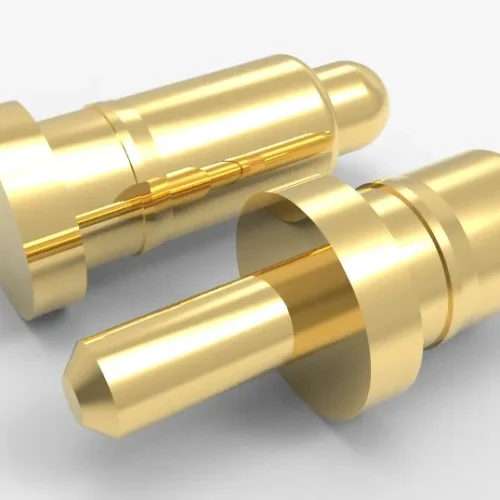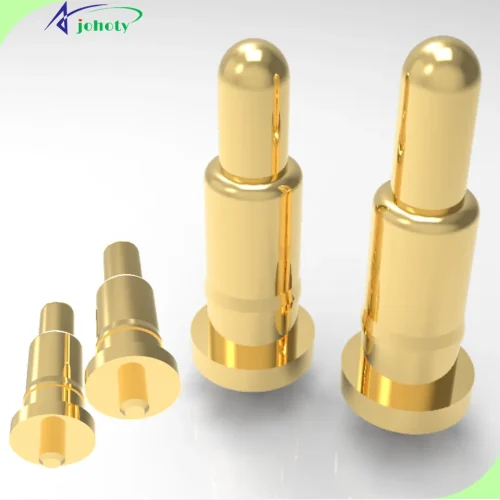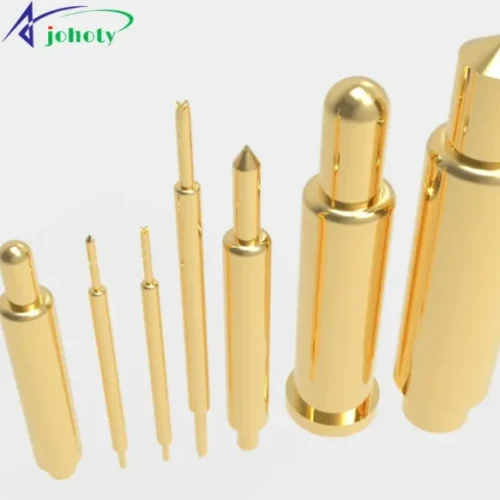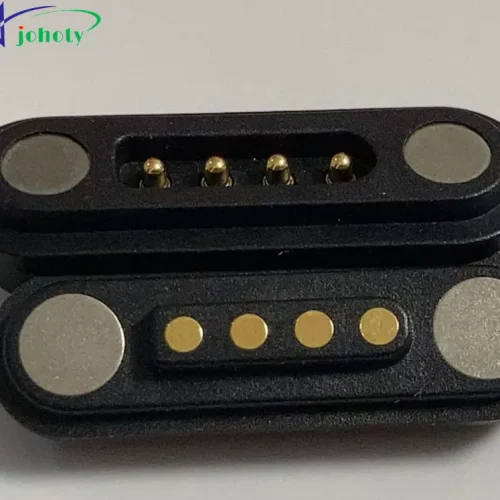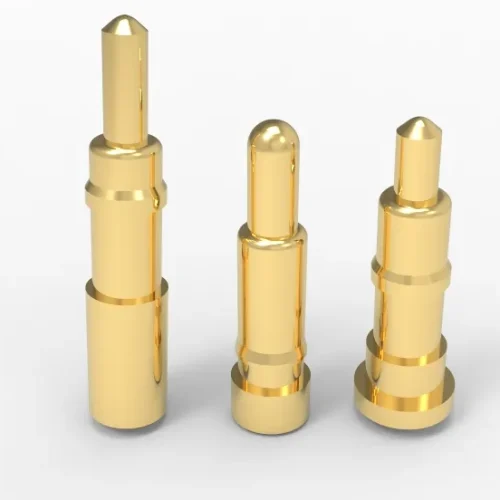Do you want to extract your teeth or already have a missing tooth and are looking for a suitable treatment option? Then your dentist might recommend getting a dental screw to support the crown (fake tooth).
According to AAOMS (American Association of Oral and Maxillofacial Surgeons), the overall success rate of dental implants is 95%.
Yet, this treatment is not suitable for everyone. So, before you think about it, you should know the advantages, disadvantages, and safety of dental screws.
Scroll down to learn more!
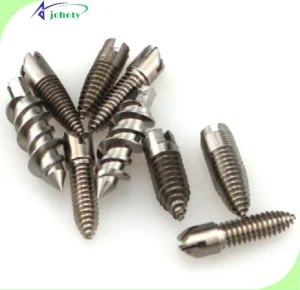
What is Dental Implant Screw?
Dental implants are metal screws placed surgically to serve as a replacement for tooth roots & to support artificial teeth, dentures, or bridges.
They are a long-term solution, that helps to restore your ability to chew and make you appear more youthful by preventing bone loss in the jaw.
In standard dental implantation, the following pieces are involved:
- A restoration (denture, bridge, or crown),
- A dental implant ( the screw or post to provide anchorage to rehabilitation),
- An abutment piece (this connects both restoration and implants).
However, some other types of dental implants don’t use abutment pieces and directly attach the implant to the restorations.
Materials Used in Dental Screws
If you are considering a dental implant, you should learn about the dental implant materials. Below we have listed the materials used in these screws:
Titanium
Titanium has been used in dental implants since the 1950s due to its high success rate. Its use extensively increased in the early 1980s, making it one of the most accepted metallic biomedical materials in medical use.
According to research, titanium and its alloys are suitable for dental procedures due to their biological, physical, and chemical properties.
The following qualities of titanium make it the best option to use in dental implants:
- Titanium is a strong metal and resistant to corrosion.
- It’s a biocompatible metal, and the human body easily accepts it.
- Titanium effortlessly fuses with the jaw bone, providing a strong anchorage to the artificial tooth.
Zirconia
Zirconia is another great option for an efficient implant process since it’s biocompatible with the human body.
This crystal metal has been used in some countries since the late 1990s. Besides dental screws, zirconia is also used in dental crowns and fillings.
Top 7 Advantages of Dental Screws
Dental implants have more benefits than alternatives. These include the following:
-
Ease of Use
While using dentures, you need to be mindful of their cleaning and maintenance, which involves:
- Daily flossing,
- Brushing them twice a day,
- Visiting the dentist at least once in 6 months for their maintenance.
Poor hygiene practices while using other implant-supported restorations will make you prone to issues like dental carries, periodontitis, etc.
In contrast, dental screws are placed directly into your jaw and work like natural teeth. Hence, they are easy to clean and don’t have the same risk of getting oral health issues.
-
Last for a Lifetime
Let’s be honest: none of us likes to visit dental clinics frequently, right?
Yet, living with a lost tooth is also challenging, but solutions like dental screws make your life easy. These last for decades and don’t need replacement like other options.
So, dental implants are ideal for anyone who wants a permanent solution for treating their missing teeth.
-
Aesthetic Appeal
Dental implants look like natural teeth and don’t affect your appearance. A study found that people with dental implants had a higher satisfaction rate about their appearance.
-
Boost Self Esteem
Researchers found tooth loss leads to low self-esteem, social isolation, and low-quality life. Such people avoid going out and looking for jobs.
So, replacing the missing tooth with a naturally looking dental implant helps boost patients’ self-confidence and improve their quality of life.
-
Keeps Adjacent Teeth Safe
While you have a missing tooth, adjacent teeth may be misaligned and cause difficulty in chewing. Food residues may left in the vacant space, compromising your oral hygiene.
Filling the gap in between your teeth keeps the adjacent teeth stable and safe from migrating toward the gap.
-
Prevent Future Bone Loss
When a tooth is extracted or lost, its root is also lost from its place in the jawbone. Over time, this leads to the degeneration of bones, which greatly changes the structure of the patient’s face.
A study found that most of the alveolar ridge (part of the jawbone that contains the tooth socket) is lost during the first six months of tooth loss or extraction.
Jawbone loss leads to the following issues:
- Weaker bite
- Premature-aged appearance
- Other teeth can become compromised
A dental implant is the best treatment to prevent jaw bone mass, which will also help restore your confidence.
-
Restore Chewing & Speaking Issues
Having a missing tooth also changes your speech patterns. This is because holes in your teeth affect how air passes through your mouth while talking. Besides, you will have difficulty chewing food properly.
The good news? Dental implants fill the gap and almost work like natural teeth, helping to sort out chewing and speech issues.
Disadvantages of Dental Screws
Dental implants have associated risks, and you should be aware of them before considering this treatment option.
Like all other surgeries, dental implants also have the risk of:
- Bleeding
- Infection
- Implant failure
- Gum recession
- Damage to surrounding tissues or teeth
- Anesthesia complications like nausea or vomiting
- Implants may wear out without proper oral hygiene
- Headache and pain in cheekbones due to sinus issues
Besides, dental implants are costly and might require an additional treatment like a dental bone graft. Their healing process is also prolonged, and it might take 6 to 12 months to recover properly.
Who Shouldn’t Use Dental Screws?
Dental implants are not ideal for everyone, and this decision should be taken after proper consultation with your dentist.
Furthermore, certain conditions make you unsuitable for dental implants, including the following:
- Regular smoking
- Uncontrolled diabetes
- Blood clotting disorders
- Active cancer treatment
- Consistent alcohol consumption
- Cancer and certain treatments for cancer
Are Dental Screws Painful?
You may experience discomfort and pain in the treated area lasting 8-10 days. Your doctor might prescribe painkillers and antibiotics to treat the pain and swelling.
Pain and discomfort go away after 14 days of a successful dental implant. However, if you experience pain or swelling after 14 days of treatment, this might be a sign of infection, and you should visit your dentist immediately.
Conclusion
Dental screws are the bottom part of the dental implant, made up of hypoallergenic alloy. It’s inserted in the jawbone and, over time, fuses with bone, acting as a root of artificial teeth.
The dental implant is the best treatment option for people who have lost their teeth due to injury, cavities, trauma, etc. However, not all people are suitable for this treatment, and consultation with a dentist is needed before surgery.
Looking for premium quality dental screws? Visit us without any second thoughts!




